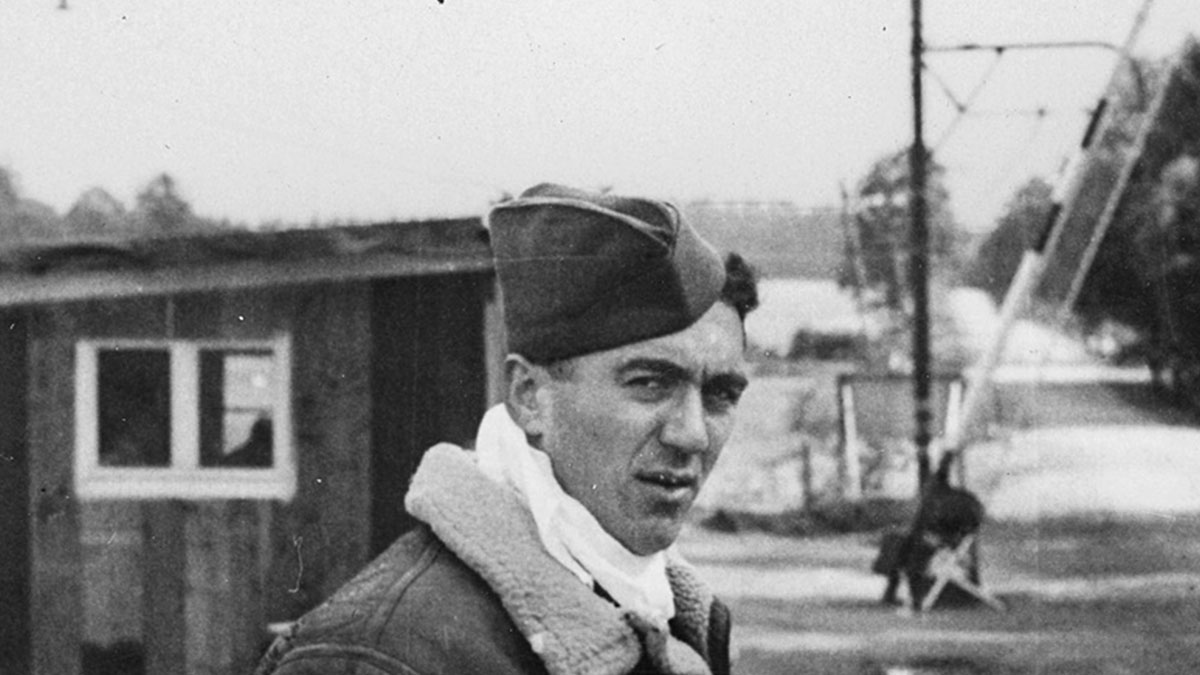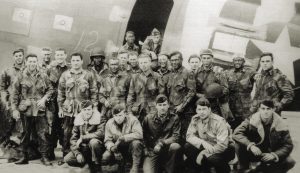The late Jewish OSS officer’s wartime adventures make for a fun, fast-paced read.
Return to the Reich: A Holocaust Refugee’s Secret Mission to Defeat the Nazis
By Eric Lichtblau. 304 pp.
Houghton Mifflin Harcourt, 2019. $28.
Freddy Mayer passed away in April 2016 at the age of 94. At the time, he still lived alone in his home state of West Virginia, driving his own car to deliver Meals on Wheels to elderly shut-ins, many no doubt years his junior. Few except relatives and close friends knew him as Frederick Mayer, a native of Freiberg, Germany, who as a Jewish teenager in 1938 fled his homeland with his family and who, in 1945, returned to German territory—this time as an OSS officer—to wage clandestine warfare against the enemy. Tales of his ensuing heroics have inspired luminaries from director Quentin Tarantino (who loosely based elements of his 2009 film Inglourious Basterds on Mayer’s exploits) to Pulitzer Prize-winning journalist Eric Lichtblau—who features the refugee-turned-spy in his new book, Return to the Reich: A Holocaust Refugee’s Secret Mission to Defeat the Nazis.
Glory wasn’t written in the stars for Mayer, a happy-go-lucky young man with a reputation for being “scrappy” and “mischievous.” An indifferent student, he developed a passion for auto mechanics and found himself more at home in a garage than a classroom. Following Pearl Harbor, Mayer immediately enlisted in the U.S. Army and soon discovered his hard-headed temperament was ill-suited for the military. But this fierce independence—which often bordered on insubordination—combined with fluency in English, German, and French ultimately caught the attention of OSS recruiters. Within the fledgling organization, Mayer found his place among other wartime misfits whose personalities and talents didn’t mesh well with the military.
Mayer trained and served with native German OSS members like himself, all willing to return to the very homes they had fled. Teamed with a shy Dutch intellectual, Hans Wynberg, the pair ultimately ended up in the Austrian Alps in 1945 on a mission called Operation Greenup. At the time Allied troops were advancing into Austria, and the U.S. desperately needed intelligence regarding Nazi operations through the Brenner Pass dividing southern Austria and northern Italy. There was a rumored buildup in an “Alpine Fortress,” where battle-hardened Nazi troops intended to wage a last stand for Hitler. The mission necessitated parachuting into Austria’s western Tyrol state, and so Freddy recruited a disgruntled Nazi POW named Franz to be their guide. Such were Mayer’s powers of persuasion—especially considering Franz would be required to parachute from a B-24 Liberator having never previously completed a jump.
The OSS had suffered a string of failed operations launched out of Italy, but Operation Greenup was a spectacular success. In fewer than six months, Mayer and his team wreaked havoc on Nazi operations by recruiting resistance operatives, committing sabotage, transmitting accurate positions of troop movements, and providing enough targeting intelligence for the U.S. Fifteenth Air Force to bomb enemy supply lines and ordnance factories. Along the way, Mayer somehow singlehandedly convinced a German regional leader to surrender to advancing Allied forces, posed as both a Nazi officer and a French POW, and suffered torture at the hands of the Gestapo.
Lichtblau’s book is not the first to celebrate Mayer’s wartime contributions. In 2009, military historian Patrick K. O’Donnell released They Dared Return: The True Story of Jewish Spies Behind the Lines in Nazi Germany. O’Donnell spent eight years interviewing Mayer and other Jews who volunteered to return to Germany and Austria. In contrast, Lichtblau spent a single afternoon with Mayer right before the former agent’s death, relying heavily on journals, correspondence, and typed recollections to, in his words, “give readers a full sense of the man and his mission.” For history buffs in search of a thorough general treatment of OSS operations, and Greenup specifically, O’Donnell’s book is the better choice.
Freddy Mayer’s story is an example of covert operations at their best, however, and Lichtblau tells it well. Much like his first World War II-focused book, 2014’s The Nazis Next Door, Lichtblau has crafted a fun, fast-paced read about a true hero. ✯
—Ann Todd wrote OSS Operation Black Mail: One Woman’s Covert War Against the Imperial Japanese Army (2017).
This article was published in the June 2020 issue of World War II.





